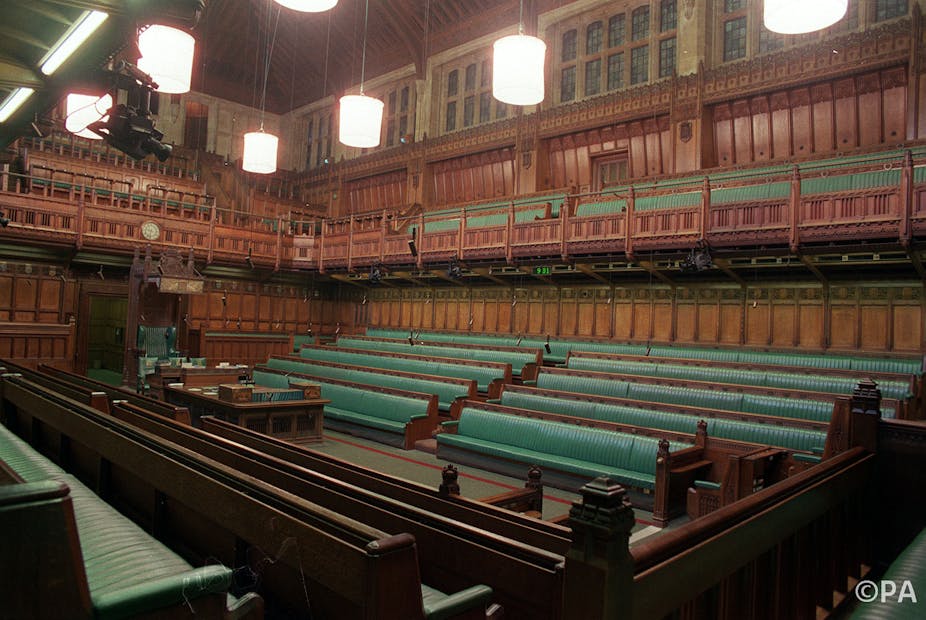The British government has come under fire for failing to properly debate EU legislation. The free movement of EU citizens and the rule of law in member states have been largely ignored in the House of Commons, a report by the European Scrutiny Committee has shown.
In the financial year 2014–15, there were only three debates on the floor of the House, compared with 12 in the financial year 2013–14. There were no debates between June 9 2014 and March 9 2015. This announcement came on the day of the final prime minister’s questions – and only 43 days before the general election.
A lack of interest
The committee’s report pointed to a dual failure. At the EU level, the most recent changes to the EU Treaty gives national parliaments the right to intervene in EU policy-making by submitting reasoned opinions. This relates to the EU’s principle of subsidiarity – the idea that EU decisions should be taken as closely to the citizens as possible.
The government’s lack of a constructive and consistent approach to EU scrutiny illustrates the limited appetite for parliamentary scrutiny of EU issues. It also shows that the government is wasting opportunities to affect EU decision-making.
At the national level, the government’s behaviour raises issues of its domestic accountability – or lack thereof – to the parliament. According to the report, the government has not taken the committee’s recommendations seriously in the past and has failed to respond within the customary deadline. This undermines the work of the committee, its legitimacy and its ability to scrutinise the government.
More broadly, it shows that the EU is not central to the government’s agenda. It suggests that David Cameron’s pledge to deliver a referendum on Europe by 2017 if he remains prime minister was initially a response to Eurosceptic backbenchers, and later to counter the success of UKIP in the 2014 European parliament elections.
The lack of substantive interest in the EU is also illustrated in the pre-electoral campaigns. The discussion on Europe has been structured in binary terms: should the UK stay in or should it remain in the EU? This over-simplified way of looking at the referendum severely limits the debate, which in reality should be much more complicated.
People’s choice
Asked what the EU means to them on a personal level, UK citizens’ responses vary. There is a clear economic component in people’s perceptions about the EU. Using Eurobarometer, I have calculated that more than 25% of respondents think that the EU means bureaucracy, 20% think that the EU is a waste of money while only 9% associate it with economic prosperity.
Clearly, UK citizens weigh up their country’s EU membership in terms of costs versus benefits. For example, whether cost of the red tape and regulation to UK businesses is offset by the benefits of trade agreements.

But there is also a cosmopolitan element to it: 37% of UK citizens say that the EU means freedom to travel, study and work anywhere in the EU. But here there is also a debate: 21% associate the EU with cultural diversity whereas 16% with loss of national identity, and just over 20% associate the EU with relaxed international border controls.
This goes a long way to showing that the divisive in/out angle of the referendum debate conceals a number of issues: a debate on the economic advantages and disadvantages of remaining in the EU; but also a debate on values, identity, lifestyle and the benefit of belonging to a larger community.

